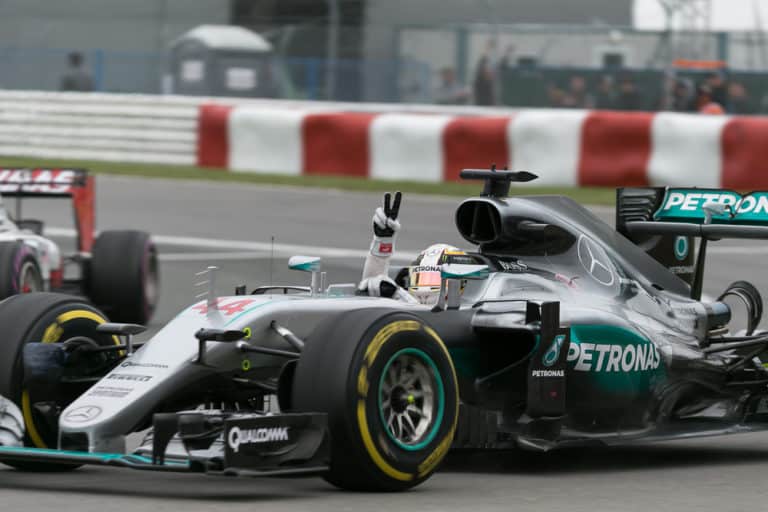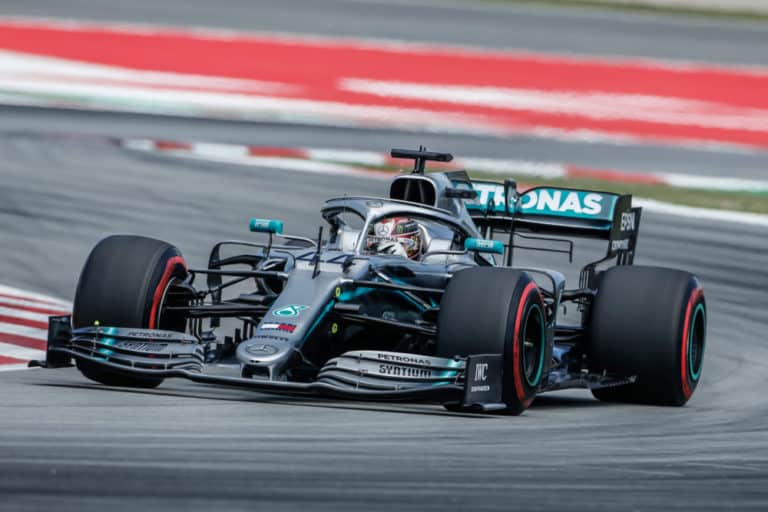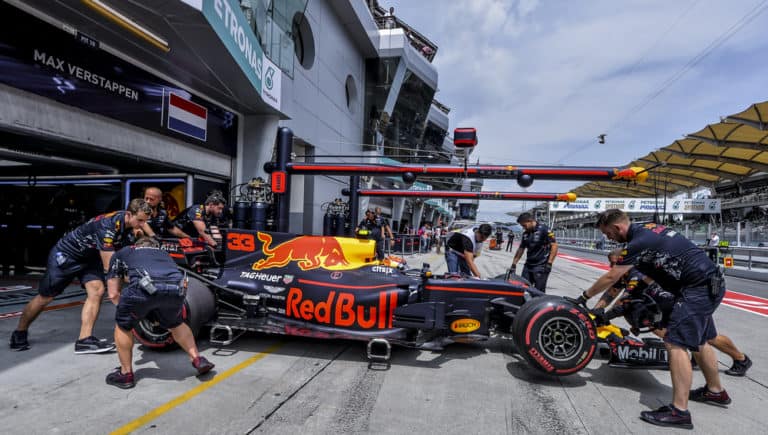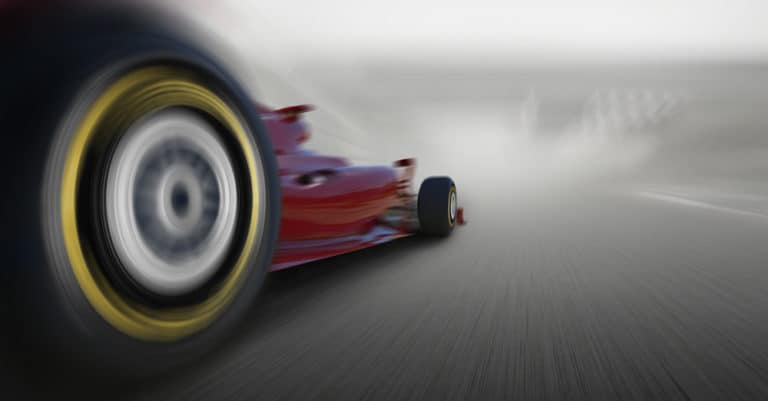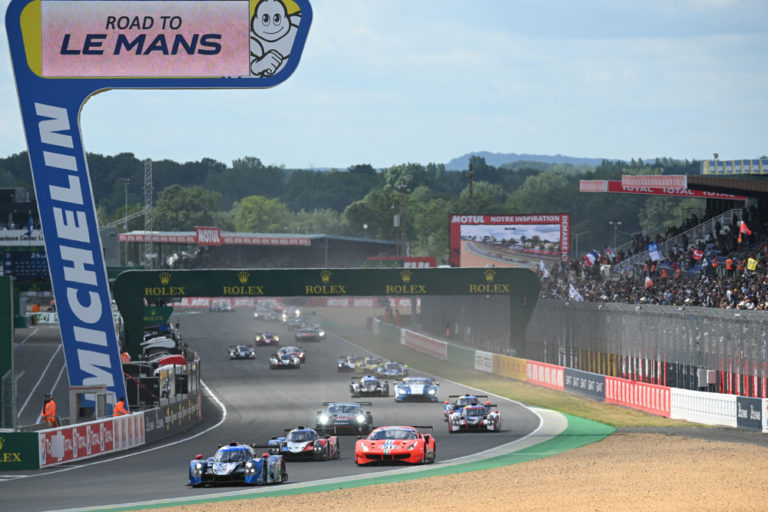Ford is undoubtedly one of the giants in the automotive industry, yet they choose to refrain from Formula One events. I enjoy everything F1 and own a Ford, but I’d be lying if I said I wasn’t the least bit curious about how they fit together. So, let’s explore whether Ford is in Formula 1.
Ford is not involved with F1, and they do not have plans to return to the F1 scene. Ford sponsored Cosworth, which supplied F1 engines from 1966 to 2004, but they only participated from 2000 to 2004 under their subsidiary, Jaguar. They withdrew from F1 in 2004 because it cost too much money.
Ford was once part of the F1 scene, though they have since moved on to racing events like the FIA World Endurance Championship, NASCAR, and Australia Supercars Championship because it’s cheaper, they receive better publicity, and make a higher turnover. Let’s explore all of these factors and see how Ford came to be.
If you’re looking for some F1 merchandise, check out the awesome stuff at the official F1 store here.
How Involved Is Ford In Formula 1?
Following Ford’s purchase of the Stewart team in 2000, Ford participated in Formula One as a team for the first time under the guise of its subsidiary, Jaguar. The Ford-owned Jaguar team raced until 2004 until they decided to stop their involvement in Formula One after 38 years.
The Cosworth DFV, which Ford sponsored, became one of the most successful engines in Formula One history. The engine’s inception had them supplying nearly every Formula One team, barring significant competitors – this went on from the end of the 1960s until the early 1980s.
Ford sponsored the Cosworth engine suppliers from 1966 to 2004, which considerably affected Formula One. When Ford withdrew from F1, Cosworth continued to supply engines for Formula One, although Ford no longer supported it.
Does Ford Have Plans To Return To Formula 1?
Dave Pericak, director of Ford Performance, stated that Formula One is not on the list for Ford. He says that their current commitments contain a healthy relevance to all the goals and objectives they want to achieve, particularly in developing their tools technology and working with people to transform those ideals into road cars.
Furthermore, Formula One is ludicrously expensive, and it would detract from Ford’s resources and hinder their long-term goals.
What Other Reason Would Deter Ford From Returning To F1?
For starters, keep in mind that, while Formula 1 is the cutting-edge peak of racing, it does not share the same history in the United States as it does in the rest of the globe. While the US Grand Prix has had ten different track locations since 1908, it has gone through 44 distinct “editions” (sponsoring companies, rules, etc.).
In comparison, the Indianapolis 500 is always in the same place, on the same day, with more-or-less constant rules since 1911. Alternatively, there’s the Daytona 500, which has been remarkably consistent since 1959.
Even though Ford motorsport president Mark Rushbrook believes the expense of competing in Formula 1 is now too high, he is keeping a close eye on developments. Rushbrook concedes that the sport’s hybrid-era technology has piqued his attention, and he’d be interested in learning more if F1 could dramatically reduce the cost of racing.
Despite the 2021 regulations’ budget restriction, the Ford CEO believes there is still a lot of room for expenses to spiral out of control because “cost reduction in F1 is all relative.” Manufacturers will spend in another area to boost their chances of winning if one area reaches its cap.
What Does Ford Need To Consider About F1 Participation?
The high costs involved in Formula One have some automotive manufacturers looking elsewhere to boost their profits. Ford’s strategic decision to withdraw from F1 holds other benefits, too. Ford considers some things before entering racing events to impact sales, customers, reputation, and innovations positively.
Improve Sales
Motorsports give a platform for businesses to display their products and improve their brand awareness. A successful race can produce great publicity for their business, increasing sales.
Find And Test Technological Developments
Many contemporary vehicle technologies were first developed and tested on a racetrack platform before being adapted for everyday usage on the road. Racing allows Ford to create new technologies favored by consumers.
Connect With Customers
It gives a fantastic platform for businesses to connect with their customers. Brands like Red Bull, for example, have utilized such events to build their brand and sales by directly engaging with consumers.
Use Reputation And Brand Name To Peddle Success
Successful races coupled with lower costs help Ford display the validity of their vehicles and ensure a higher turnover. Ferrari and McLaren, for example, both rely significantly on their F1 background for their road vehicle operations.
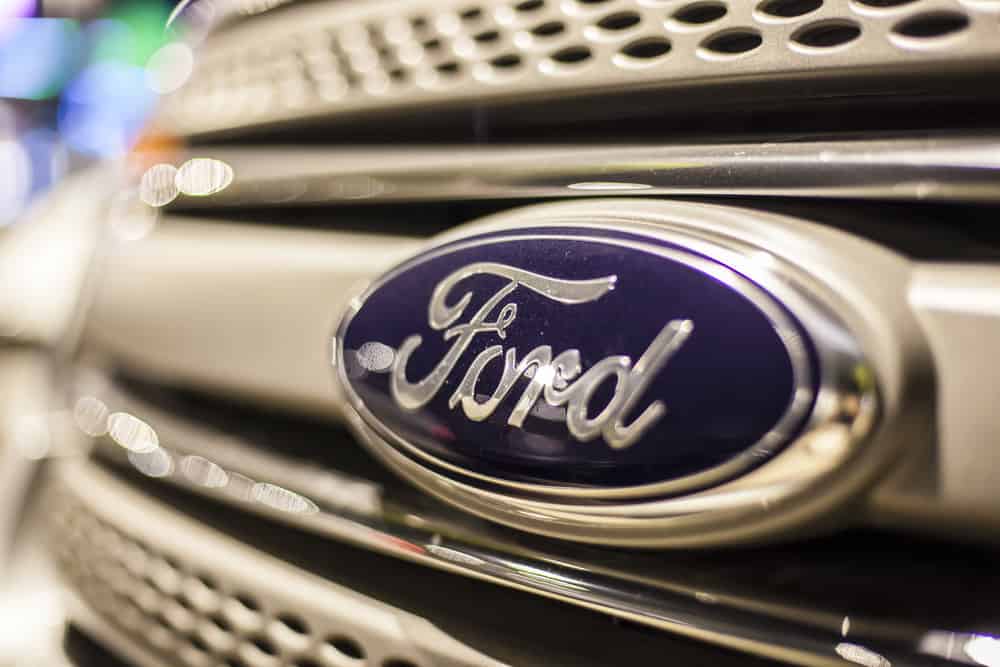
Where Can You Find Ford Racing Nowadays?
In 2016, Ford returned to GT racing with a new program for the World Endurance Championship and the IMSA SportsCar Championship, winning the GTE class of the Le Mans 24 Hours on its first attempt. M-Sport represents it in the World Rally Championship, and it also competes in the World Rallycross Championship.
Ford also makes a name for themselves in the following racing events:
- NASCAR
- Xfinity Series
- Truck Series
- FIA World Rally Championship
- WeatherTech Sportscar Championship
- FIA World Endurance Championship
- Australia Supercars Championship
What Is Formula Ford?
After karting, Formula Ford is Ford’s first big step into formula racing. Formula Ford, commonly known as F1600 and Formula F, is a single-seater, open-wheel formula racing class for amateurs. Many aspiring Formula One drivers use the different competitions hosted worldwide as a stepping stone.
Formula Ford is not a single-make series. It allows for chassis design, engine development, and various other technical specifications on the automobile. Many chassis makers, both large and small, will benefit from this.
Conclusion
Ford’s involvement in the F1 scene is not apparent since 2004. Nevertheless, they do sleep with one eye open in case their prospects become more appealing. Until then, it remains too expensive and the risk too. Thus, they will opt for cheaper racing events with higher yields, like NASCAR.
Sources
- https://f1.fandom.com/wiki/Ford#:~:text=The%20Ford%20Motor%20Company%20is,1966%20and%20ending%20in%202004.
- https://www.autosport.com/f1/news/formula-1-return-not-on-fords-radar-5023291/5023291/
- https://www.campaignlive.co.uk/article/red-bull-buys-jaguar-formula-1-racing-team-ford/228066
- https://f1i.com/news/290454-ford-motorsport-boss-never-say-never-formula-1.html
- https://en.wikipedia.org/wiki/Ford_Performance
- https://www.quora.com/Why-dont-brands-like-Ford-and-GM-take-part-in-Formula-1

